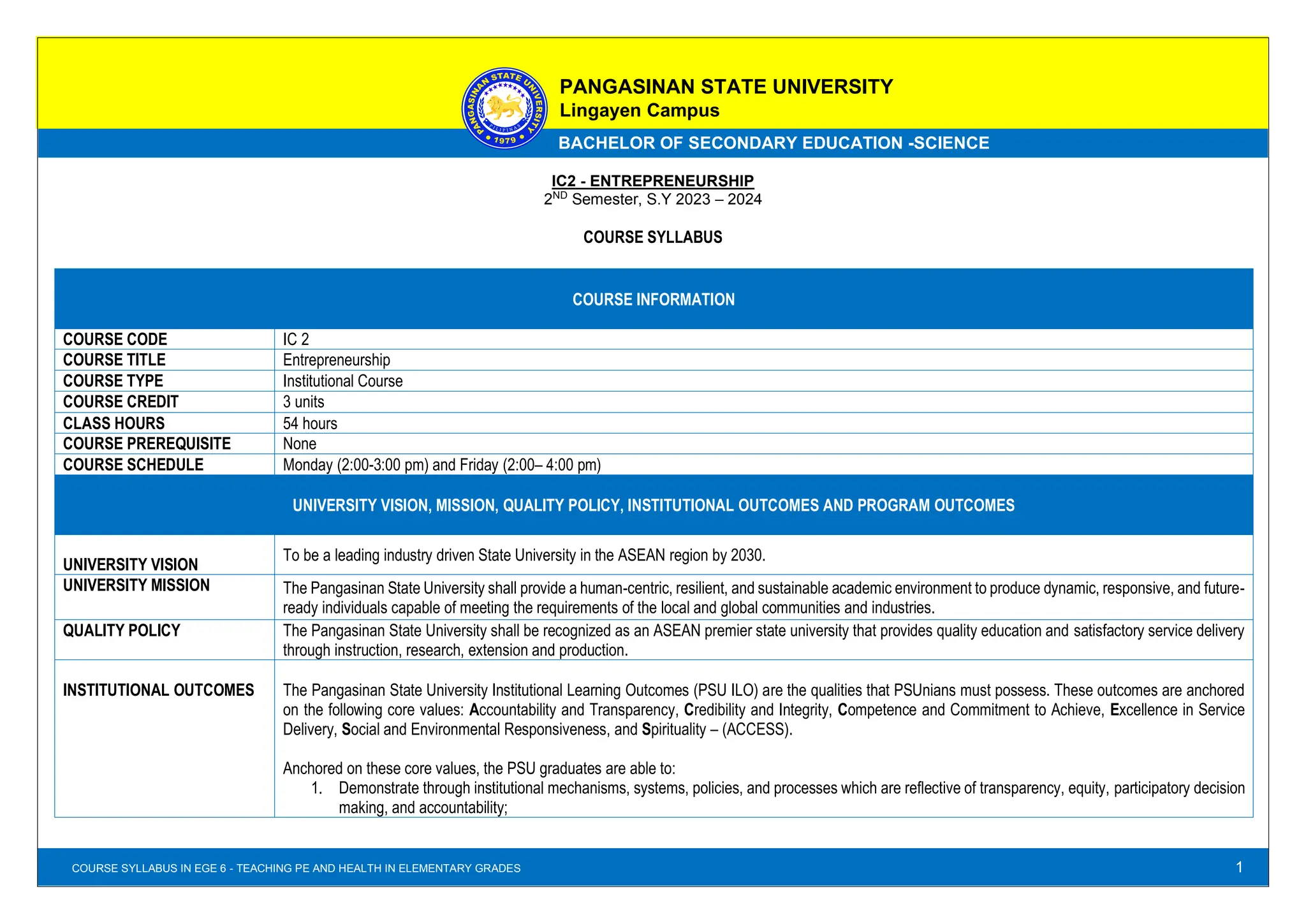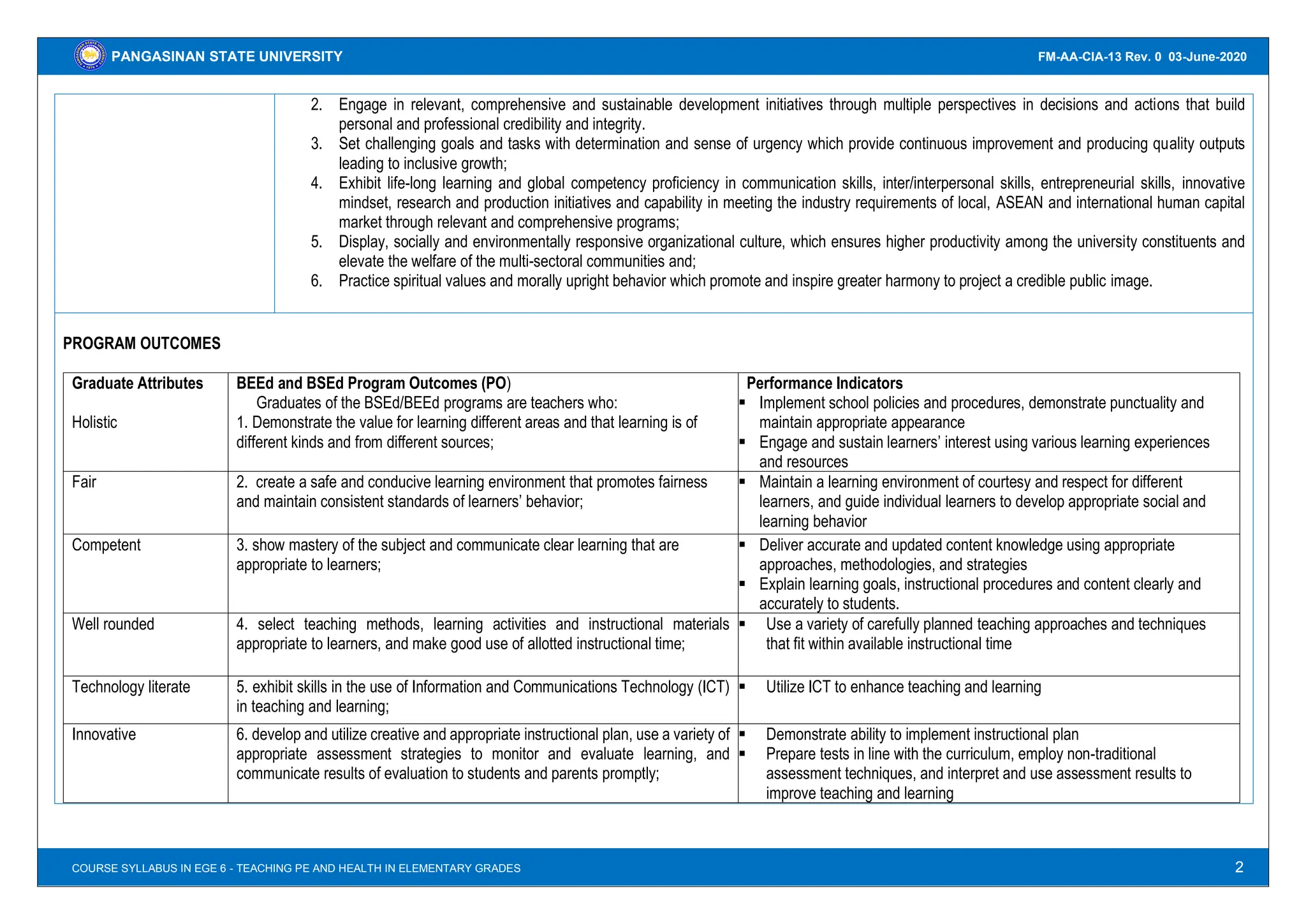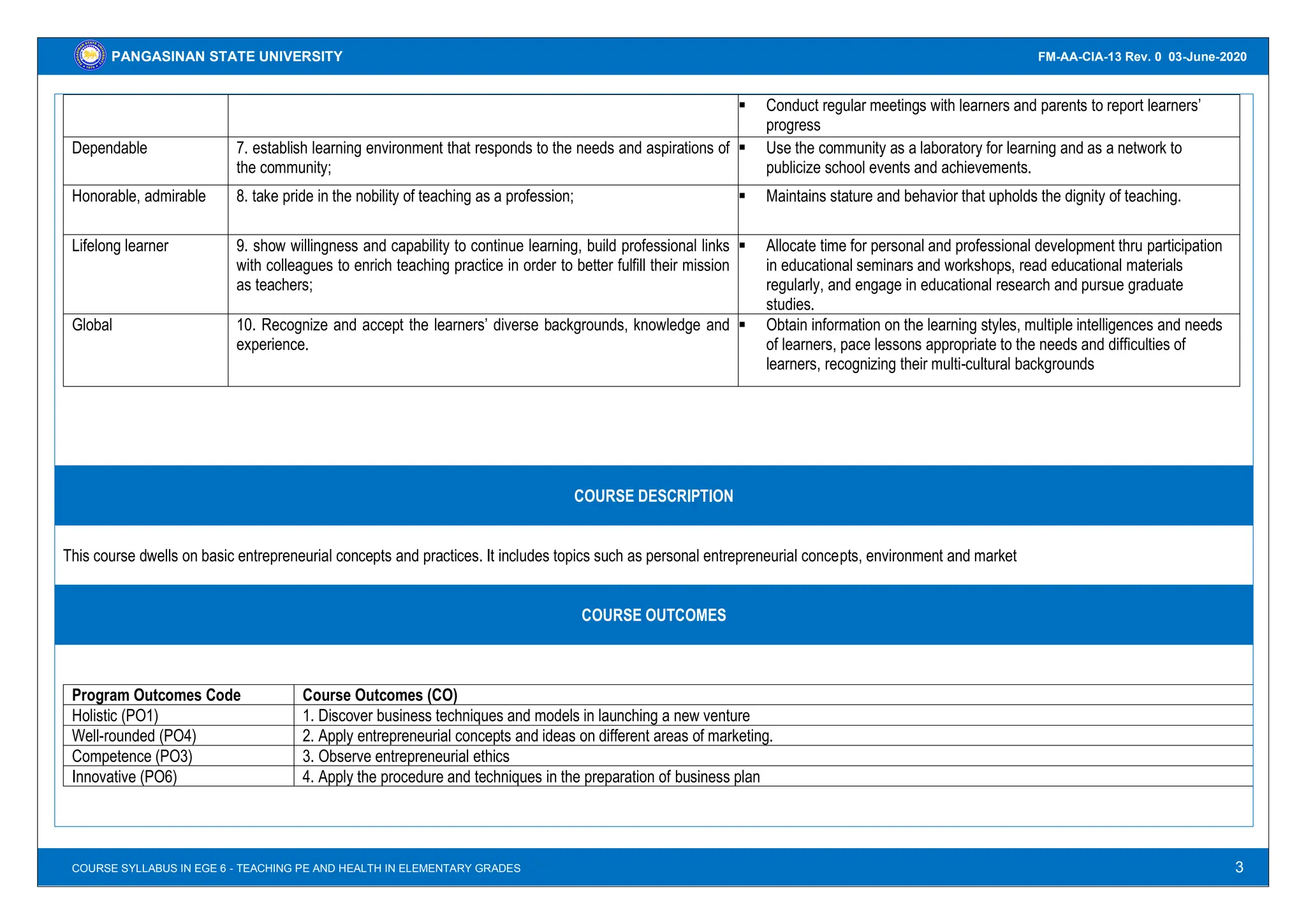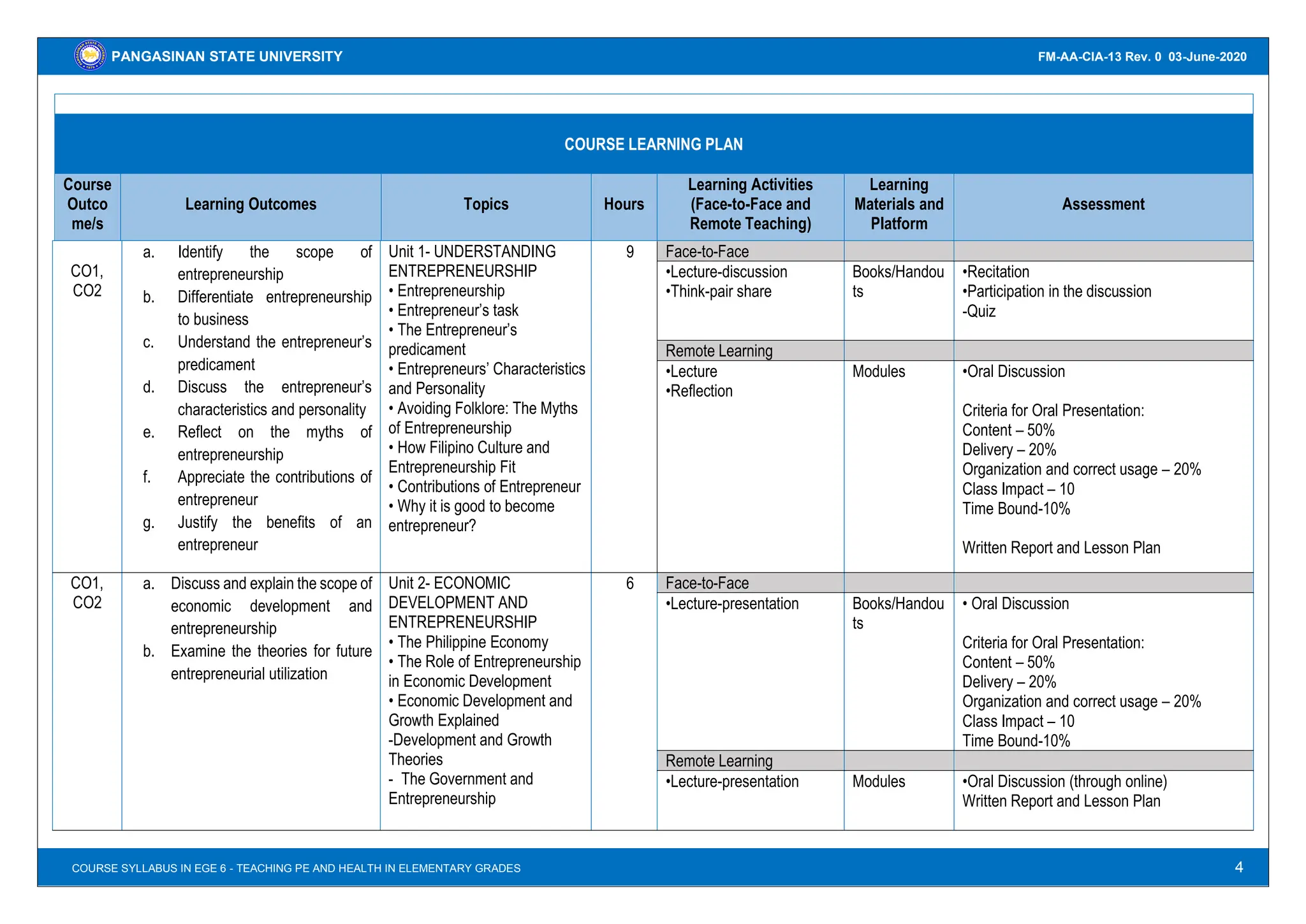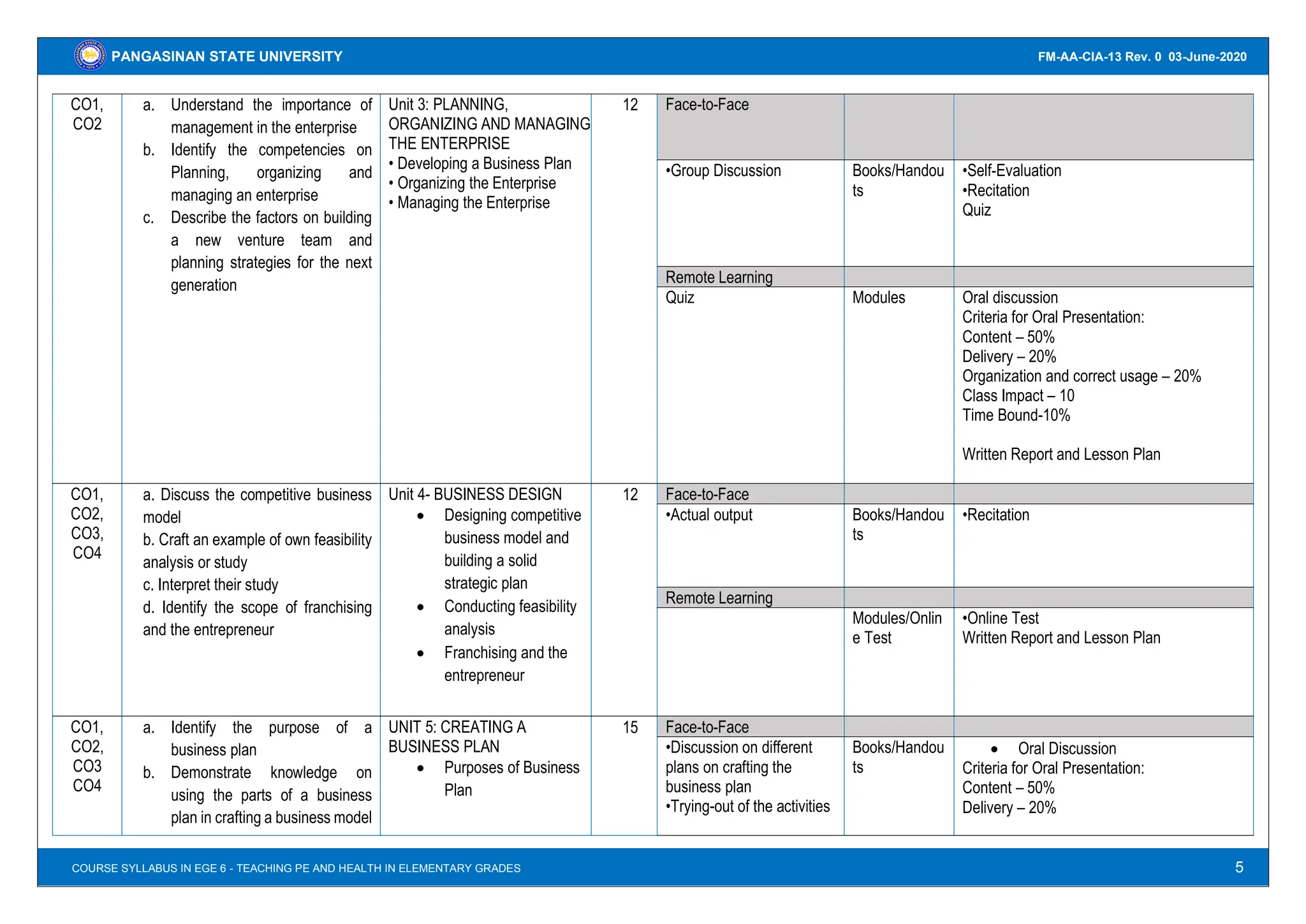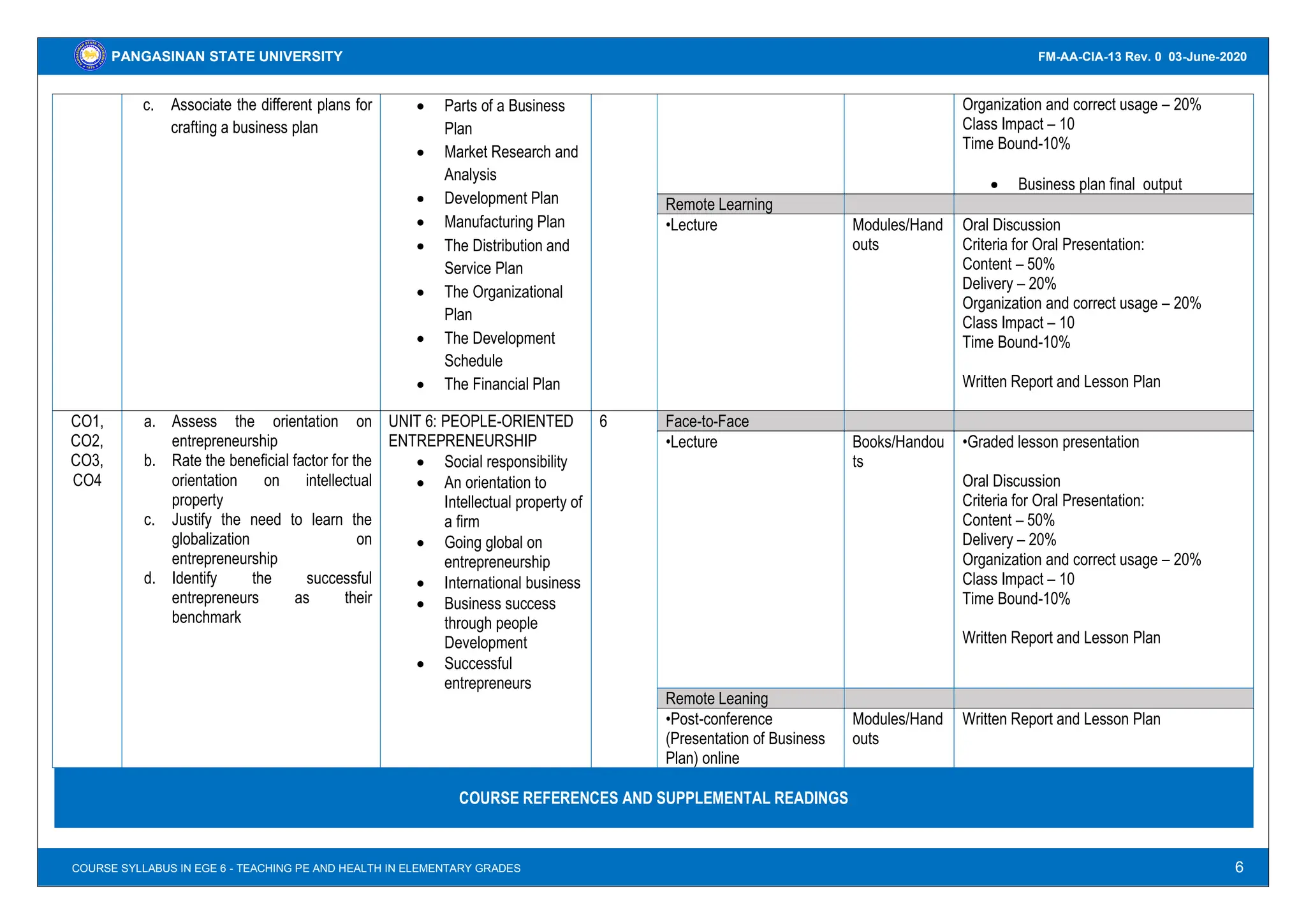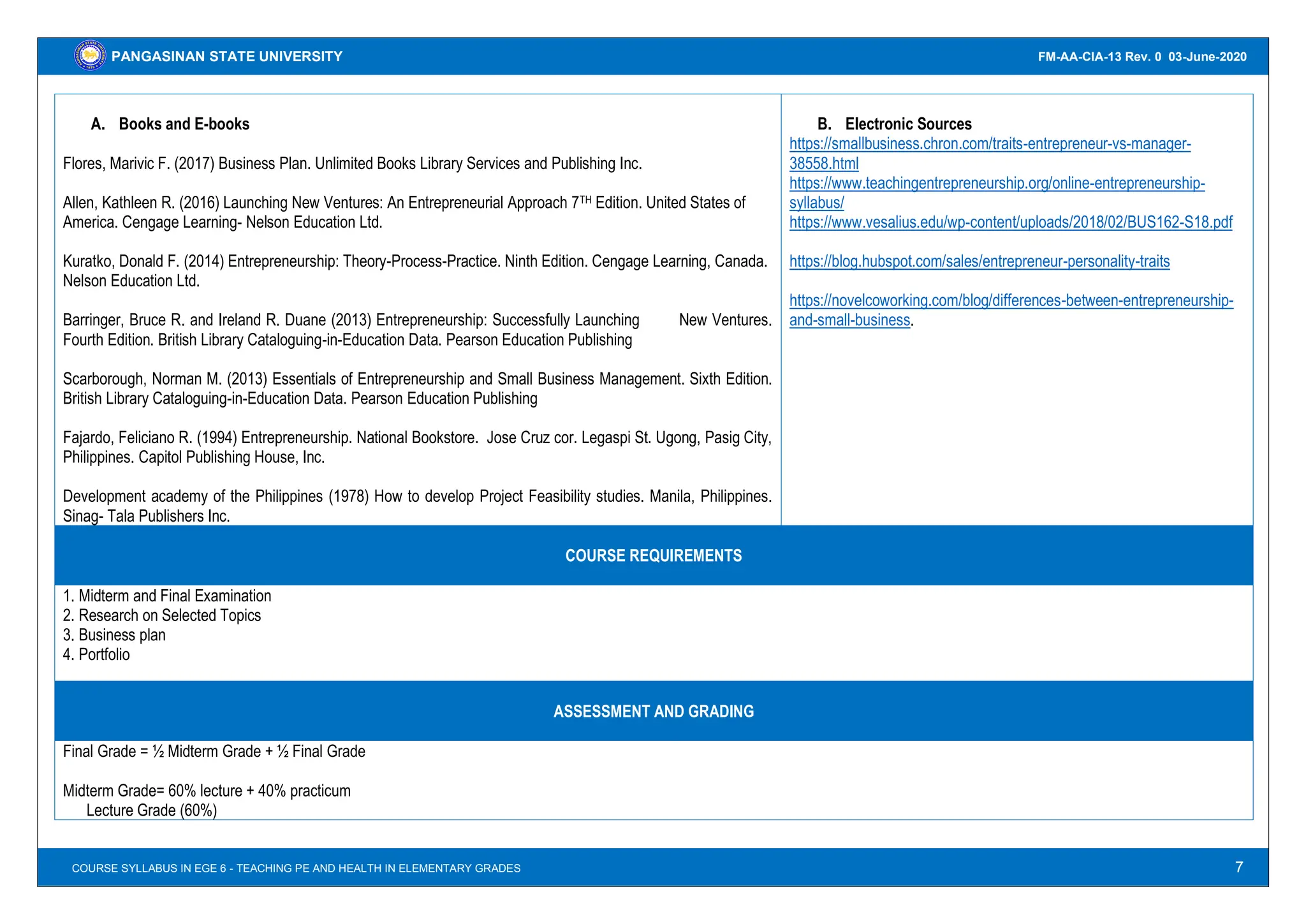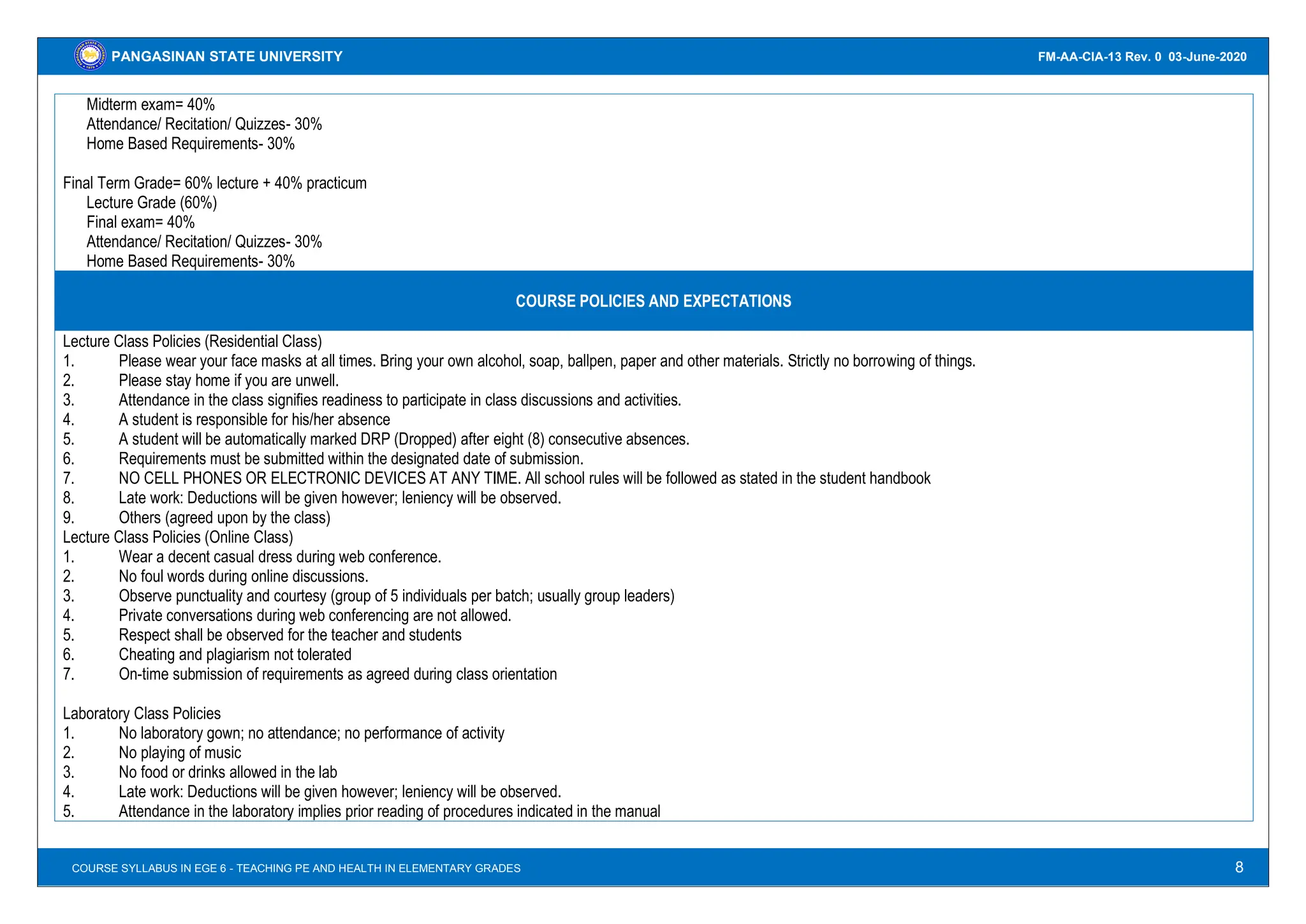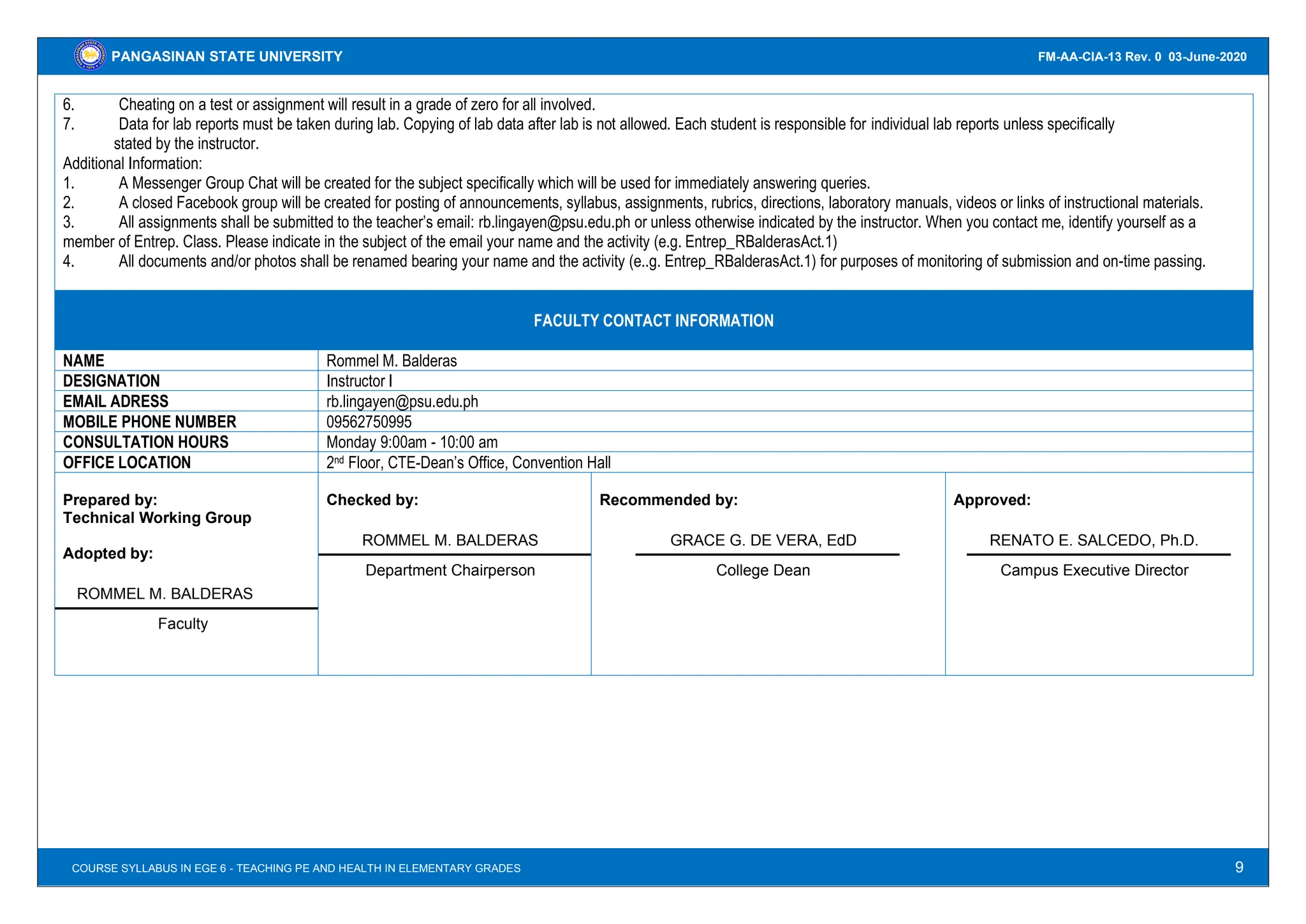The document provides information on an entrepreneurship course syllabus including:
- The course details the basic concepts and practices of entrepreneurship including launching new ventures and applying ideas to different marketing areas.
- It will cover understanding entrepreneurship, economic development theories, and planning, organizing, and managing an enterprise.
- Learning activities will include lectures, discussions, presentations and developing a business plan to achieve the learning outcomes of discovering business techniques, applying entrepreneurial concepts, observing ethics, and creating a business plan.
